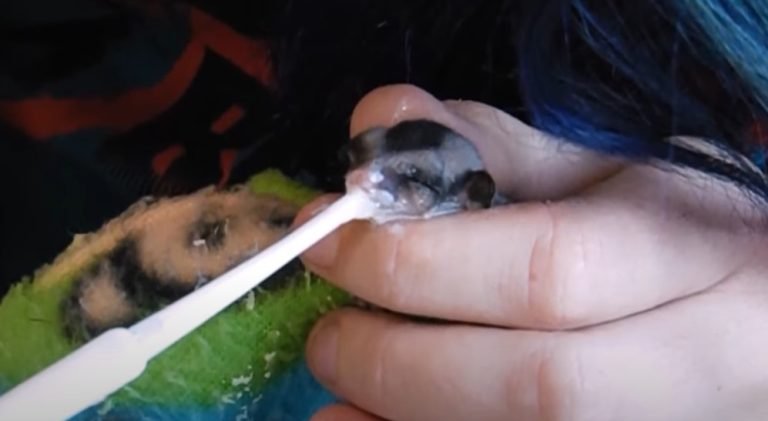Can Sugar Gliders Eat Turkey
The answer is yes, sugar gliders can eat turkey. However, it is important to understand the dietary needs of these small marsupials before incorporating turkey into their diet. In this article, we will explore the nutritional requirements of sugar gliders, the benefits and drawbacks of feeding them turkey, and provide some tips on how to safely introduce turkey into their diet.
The Nutritional Needs of Sugar Gliders
Sugar gliders are omnivores and require a diet that consists of both animal protein and plant matter. In the wild, their diet primarily consists of nectar, sap, flowers, insects, and small vertebrates. To ensure their health and well-being in captivity, it is essential to provide them with a diet that closely mimics their natural feeding habits.
The main components of a sugar glider’s diet should include a variety of fruits, vegetables, insects, and a source of protein. It is important to offer them a balanced diet that is rich in vitamins, minerals, and other essential nutrients.
Turkey as a Source of Protein
Turkey is a lean source of protein and can be a valuable addition to a sugar glider’s diet. Protein is essential for growth, tissue repair, and overall health. When feeding turkey to sugar gliders, it is important to remove the skin, as it can be high in fat and sodium. Plain, cooked turkey meat without any seasoning or additives is the safest option for these small marsupials.

It is worth noting that turkey should only be offered as an occasional treat or part of a balanced diet. Feeding too much turkey or relying solely on it as a protein source can lead to an imbalance in their diet. Variety is key, so it is crucial to incorporate other sources of animal protein, such as insects, into their diet as well.
Precautions and Considerations
While turkey can be a safe and nutritious addition to a sugar glider’s diet, there are a few precautions and considerations to keep in mind:
1. Portion Size: Sugar gliders are small creatures, and their portion sizes should reflect that. Offer small, bite-sized pieces of turkey to prevent choking and ensure they can easily handle the food.
2. Cooking Method: Always cook the turkey thoroughly to eliminate any potential bacteria or parasites that may be harmful to your sugar glider. Avoid seasonings, spices, or marinades, as they can contain ingredients that are toxic to these animals.
3. Moderation: Turkey should be given in moderation, as too much can upset a sugar glider’s digestive system. It is best to offer turkey as an occasional treat or part of a varied diet.
4. Allergies or Sensitivities: Like humans, sugar gliders can have individual allergies or sensitivities. Monitor your glider closely after introducing turkey to ensure there are no adverse reactions, such as gastrointestinal upset or allergic reactions.
5. Consult with an Exotic Veterinarian: If you have any concerns or questions about incorporating turkey or any other new food into your sugar glider’s diet, it is always best to consult with an exotic veterinarian who has experience with these unique animals. They can provide personalized guidance based on your glider’s specific needs.
Frequently Asked Questions
1: Can sugar gliders eat turkey bones?
It is best to avoid offering turkey bones to sugar gliders. The bones can splinter and pose a choking hazard or cause internal injuries. Stick to the meaty portion of the turkey without any bones.
2: What other sources of protein can I feed my sugar glider?
In addition to turkey, other suitable sources of protein for sugar gliders include mealworms, crickets, silkworm larvae, and small pieces of cooked chicken or tofu. These options are readily available and generally safe when offered in moderation.
3: Can sugar gliders eat turkey skin?
It is advisable to remove the skin from the turkey before offering it to your sugar glider. The skin can be high in fat and sodium, which are not suitable for these small animals.
4: Are there any fruits and vegetables that should not be fed to sugar gliders?
Yes, there are certain fruits and vegetables that can be harmful to sugar gliders. Avoid feeding them avocado, garlic, onions, and citrus fruits, as these can be toxic. Additionally, be cautious with high-sugar fruits like grapes, as excessive sugar intake can lead to health issues.
Final Thoughts
While sugar gliders can enjoy turkey as a tasty source of lean protein, it is important to offer it in moderation and as part of a balanced diet. Always prioritize the nutritional needs of your sugar glider and consult with an exotic veterinarian if you have any concerns or questions. Remember, variety is key in their diet, so try to offer a diverse range of fruits, vegetables, insects, and proteins to ensure their overall well-being.







